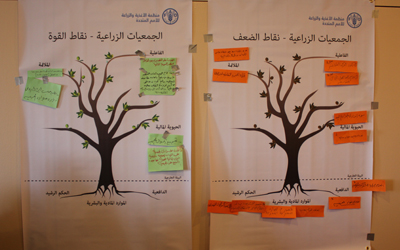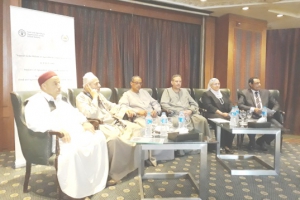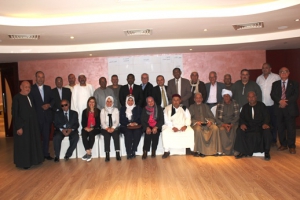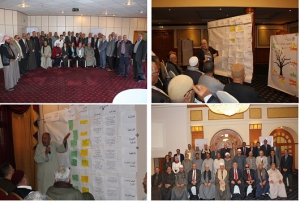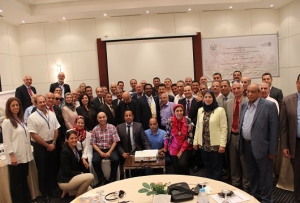Following the approval of this law, the GoE requested assistance from FAO to help cooperatives take advantage of the opportunities offered by the new enabling environment, capitalize on the exchange of experiences and identify best practices from successful professional organizations in other countries.
What did the project do?
The main features of agricultural cooperatives in Egypt were characterized through a mapping study; and profiling of the cooperatives was undertaken to assess their performance levels.
An action plan was developed to support reforms and the implementation of laws to activate the work of cooperatives; and a future national programme was formulated to ensure that the desired reforms would be implemented as per the suggested plan of action.
To ensure the sustainability of the project activities, training of trainers programmes were organized for staff members from the Central Administration of Agricultural Cooperatives (CAAC) of the Ministry of Agriculture and Land Reclamation; the capacities of agricultural cooperative members and CAAC staff were strengthened through a capacity-building programme; a pilot activity was implemented to guide four cooperatives to explore the feasibility and potential of the amendments of Law 204/2014; and an electronic/virtual network was established for a National Dialogue Platform.
In addition, two study tours to France and Kenya were organized in order to expose participants to successful cooperative experiences.
Impact
The project contributed to making agricultural cooperatives in Egypt efficient, equitable and inclusive enterprises contributing to rural poverty alleviation for the benefit of small-scale farmers. For example, as a result of the knowledge and experience gained during the project workshops and study tours, one of the beneficiaries was reported to have created a new marketing cooperative using the opportunity provided by the new law on cooperatives, while another beneficiary developed her cooperative’s capacity in packaging and marketing dates to raise producers’ revenues.
Activities
- Eight workshops were held to develop a participatory action plan with agricultural cooperatives to reform the cooperative movement, establish a dialogue platform, and lay the foundation of a future national programme, among other things.
- Mapping of agricultural cooperatives conducted, whereby data was collected from 416 agricultural cooperatives.
- Profiling of agricultural cooperatives carried out using measures for key internal and external dimensions that contributed to the success or failure of agricultural cooperatives.
- Composition of National Dialogue Platform for cooperatives discussed, and consultation organized to reach agreement on the statute and internal regulations, etc.
- Two study tours to France and Kenya organized to expose participants to successful cooperative experiences.
- Consultancy and/or implementation reports produced, as well as promotional and training materials.

